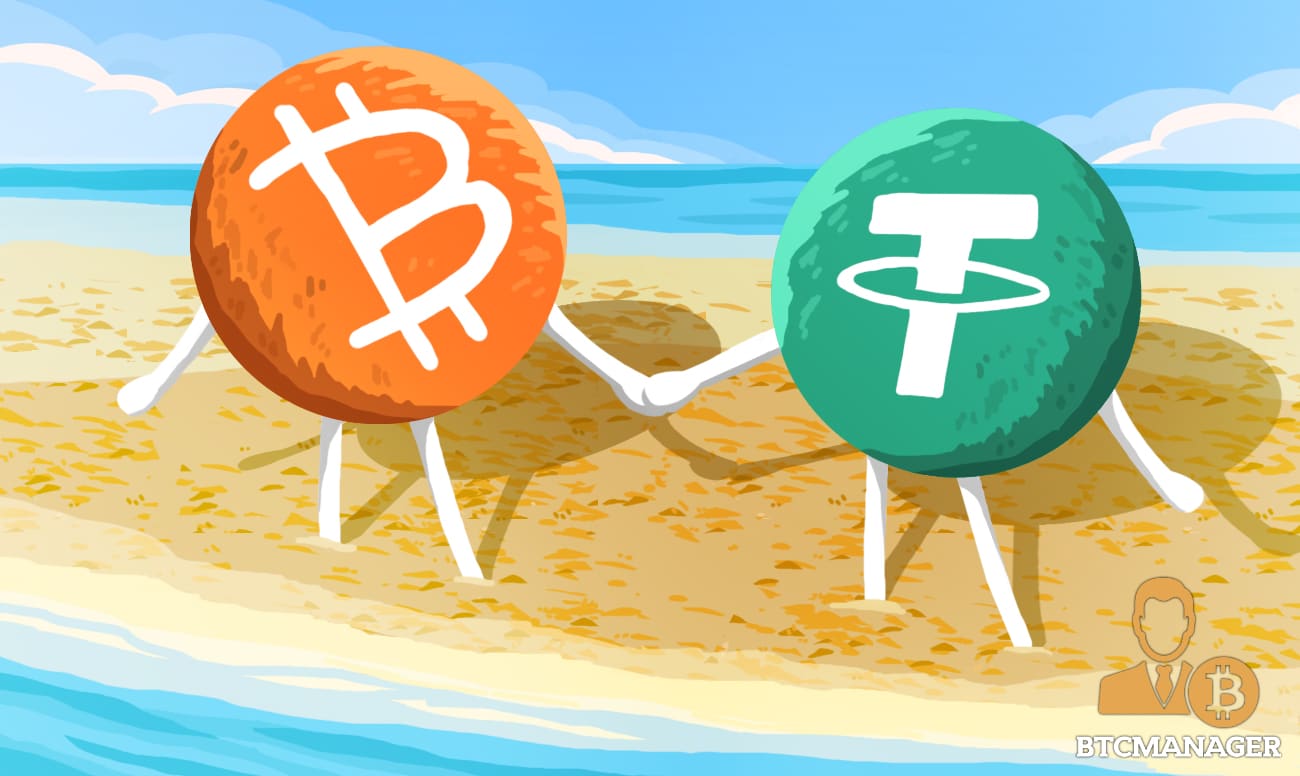Queensland University Study Finds Tether not Responsible for Manipulating Bitcoin Price

A recent academic study by Dr. Wang Chun Wei, a researcher at University of Queensland Business School, concluded that the “kingpin” of stablecoins, Tether (USDT), had no impact on the price of the bitcoin (BTC) during last year’s cryptocurrency bull run.
The study provides an interesting perspective on the claims that the USD backed stablecoin was the prime culprit for manipulating cryptocurrency prices.
No Correlation between Tether Grants and Bitcoin Price
Speaking to BTCManager.com, Dr. Wang mentioned that the “Tether Report” piqued his attention while he was working on another project examining liquidity and market efficiency across various cryptocurrencies.
To set the premise, the study mentions the generally held belief that because the Tether (USDT) is pegged to the USD, it also shares some tendencies with the fiat currency.
Some studies in the past have argued that the act of minting new Tether has an impact similar to that of a monetary expansion in an economy. Concerning cryptocurrency markets, increased volume of Tether subsequently results in bitcoin prices going up.
However, the research paper published by Dr. Wang does not support the belief mentioned above. Using the VAR model, the study concluded that there is zero degree of correlation between tether issuances and the price of the premier cryptocurrency. Although, it was also found that USDT grants do have some influence on the trading volume of bitcoin.
The paper titled “The Impact of Tether Grants on Bitcoin” observes the behavior of the U.S.Dollar-pegged cryptocurrency, Tether.
In recent past, the crypto world has been amassed with controversies regarding its favorite stablecoin, as a report by an anonymous writer, titled “The Tether Report” claimed that Tether Limited was responsible for artificially inflating bitcoin’s price.
This did not bode well with the crypto community, as the stablecoin has been criticized mercilessly by many crypto evangelists.
There is also minimal information about how Tether coins are created, and till date, the company has never been audited.
VAR Model Clears the Air for Tether
In Dr. Wang’s words, VAR is a commonly used technique in econometrics. It is used to test how different factors impact each other.
Say if you have two factors (or variables) X and Y. A VAR model can be used to test if X impacts Y, Y impacts Y, X impacts X or Y impacts X.
With the Tether analysis, he found four factors – 1) Tether Grants, 2) Bitcoin Returns, 3) Bitcoin change in Volume and 4) Tether change in Volume.
Using an unrestricted vector auto-regression (VAR) model and applying several equations to come up with some tangible results, a total of 4 essential findings were derived out of the study by Dr. Wang.
The Four Findings
First and foremost, the estimates are drawn out of VAR models altogether dismiss the claims that Tether had any meaningful impact on the 2017 bitcoin rally. The study found no empirical evidence that supports the argument that Tether issuances had a role in the upward movement of bitcoin returns on a daily basis.
On the contrary, while examining the bitcoin return equation of the VAR model, it was found that none of the lagged variables had any correlation with bitcoin returns. This observation sheds light on the constant maturity of cryptocurrency markets, as they show more significant signs of market efficiency compared to data extracted from old datasets in the past.
The next finding in the research paper postulates that there exists a positive relationship between Tether grants and increased crypto-trading in the following day. The VAR estimates arrived to show that BTC and USDT trading rises following Tether issuance. However, it is worth pointing out that the effect is short-lived and the trading volumes come back to normal level within five days.
The third conclusion drawn out of the research states Tether grants are strongly autocorrelated.
Speaking to BTCManager.com, Dr. Wang substantiated on this finding. He said:
“I find that past Tether grants impact future Tether grants. This means that if you saw a Tether grant today, there’s a higher probability that there will be another Tether grant tomorrow. Autocorrelation simply means lagged correlation to oneself, ie. Tether grants yesterday correlated with Tether grants today.”
Finally, the study gives evidence that the USD-pegged stablecoin’s trade goes up following prior day negative bitcoin returns. This behavior might be alluded to the investors “conservative” approach in crypto markets, as they switch from volatile digital currencies to ‘stablecoins’ when the market is too unstable for their liking – thus mitigating the overall portfolio risk.
Concluding, Dr. Wang’s study does not find any evidence which suggests that issuing Tether has any substantial impact on bitcoin returns. The study comes up with other results such as the high autocorrelation of Tether issuances, and the positive correlation between Tether grants and trade volume of Bitcoin over the short term.















